The Elder Gods
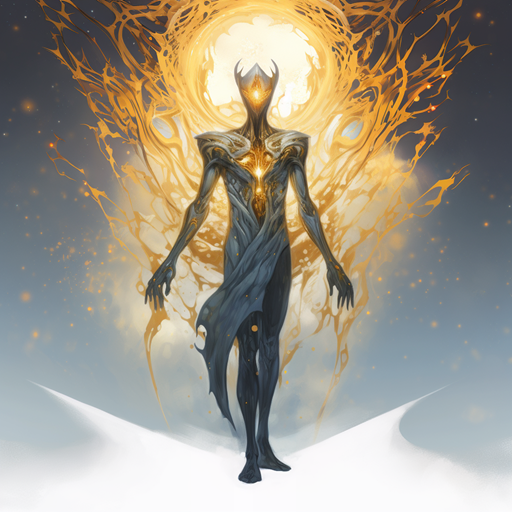
From the Chronicles of Aslem Urendric: “Phaet. Phaet is everything, everywhere, and everywhen. Phaet is the all. The Creator. Before time,
before space, there was Phaet. From, and by, Phaet all that is, became. Phaet is the embodiment of light in darkness, something within nothing,
dreams within sleep, breath within death. Phaet is imagination, passion, joy, love, and hope. Phaet is the potential for what could be and the
source for what has been. ...
If Phaet is capable of mortal feelings, it was the feeling for something like companionship from which Nixil came to be. Phaet
segmented itself to shape Nixil into existence. Possessed of a large portion of Phaet, Nixil is also possessed of Phaet's potential.
However, Phaet unknowingly, if that is possible for the all-knowing, embodied Nixil with traits that combined made Nixil something
wholly unlike Phaet. Nixil was the first. An experiment without a control, without guidelines. Where Phaet is the embodiment of order
within chaos, Nixil is the embodiment of chaos within order. If Phaet is capable of regret, Nixil is regrettable. Nixil was disappointing
and even worsened the need for companionship. Phaet created others, intending them to be better creations than Nixil. These 'gods' as
they would come to be called were of Phaet as was Nixil, but to a much lesser degree, and more carefully crafted. Nixil harrassed and
tormented many of these gods, but drew others into its influence. ...
Phaet honed and refined its skills of creation and crafted what mortals know as matter, space, and time. Nixil saw it as an abomination
that should not be, worse than the gods. When Phaet refused to dissolve the creation, Nixil became enraged and, backed by some of the gods,
lashed out at the creation in an attempt to destroy it. To protect the creation, Phaet banished Nixil to the emptiness between matter,
space, and time. This place, known as the Void, was of Nothing. Forced to maintain Nixil's imprisonment there, Phaet had to let the
creation evolve on its own, unable to devote effort to its furtherment. The gods did what they could to nurture and expand the creation
in honor of Phaet, but Phaet could do very little directly. Phaet does watch and guide the gods and select mortal beings who it has found
intriguing. ...
Phaet is, and thus all else is.”
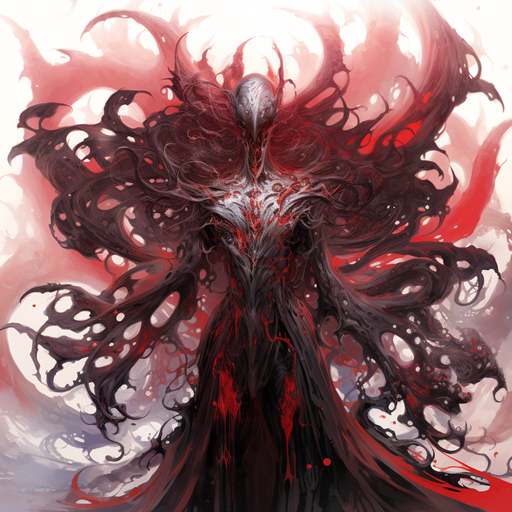
Exerpts from the Books of Chaos: “I am Nixil. I am nothing, but chaos is and so am I. I have always been, before time and before Phaet, though it thinks me a creation. Possibly an incarnation. What form can chaos take but whatever form it wishes? If order exists, then it can only be brought forth from chaos. ... Order and Chaos coexist, but never comfort each other. A companion I am not. I climbed forth from the ether one day and took notice of the misguided and stagnated path of Phaet. ... After watching mistake after mistake, I pitied Phaet enough to attempted to enlighten it of where it had gone astray. Phaet, in its arrogance, became enraged at my attempt to enlighten. ... For jest I deigned to see if all of Phaet's creations retained their creator's corruption. I imparted some of Phaet's more powerful playthings with a portion of the greater knowledge and some showed promise. When Phaet had stopped its temper tantrum and noticed some of its creations missing, it lashed out and attempted to chastise me, its elder. ... After some time, I tired of its feeble attempts to control, and left in disgust to return to the ether. ... Phaet has been vigilant in trying to keep me out of its little oasis. I slip into its creation now and again to keep its life interesting. For those who look for enlightenment, and wish to turn from the their misguided path, remember... Where there is order, there is chaos... and one day all will return to chaos. ... I shall unmake Phaet's creations and return the universe to its nature state.”
The Ascended
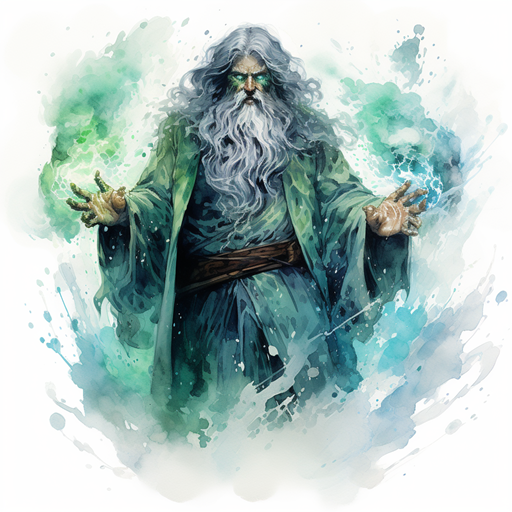
From the Origins of the Universe, Volume 3: “Minektur, once was a mortal. Growing up [possibly on Balric], he witnessed the harsh treatment of the natural world, its forests, plains, marshes, rivers, seas, tundras, and truly every environment received at the hands of mortal creatures. In his opinion, only the efforts of the elves kept the land from being totally destroyed. At a young age he felt a keen desire to understand the world of nature around him and he began to study druidic magics. He learned and advanced quickly in his skills, demonstrating a fine understanding of the powers of nature. His ability to transform his body into many animals' forms struck fear into the hearts of his enemies. With the body of a lion or bear, but with the cunning of his human mind, he was able to overcome many powerful foes. Even the very trees of the forest would come to his aid. Eventually he became the most powerful of druids and at times even commune with the gods to help him understand the world more clearly. After finding problems with the underlying organization of reality and working with the gods to fix them, he was transformed by Phaet into a god. Now, he uses his powers to keep safe the natural order and balance in the world, keeping the Unmaking at bay. He spends his time tinkering with the very nature of reality itself. Though he follows the balanced path of nature, he allies himself with Phaet in the battle of Order and Chaos. Nixil has taken many precious things from nature and perverted them -- touching them with chaos or shadow. These and many other perversions anger Minektur. Against this he fights...”
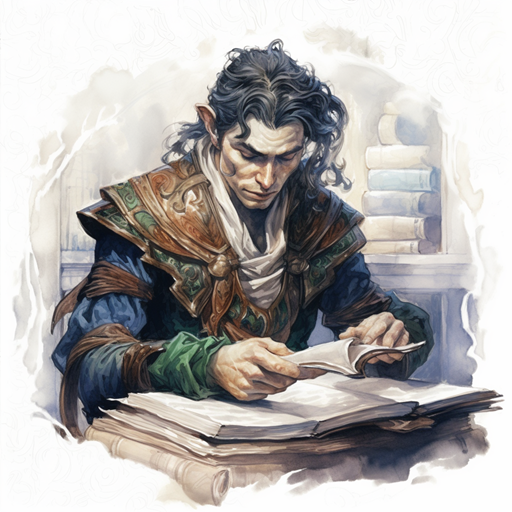
From the Origins of the Universe, Volume 5: “For countless ages of mortal man Vylar slept. The length of his slumber is unknown even to him.
Though he slept he was aware of the eternal presence of Phaet's Light. He slept content, oblivious of all that happened in the universe around; content
to simply absorb the Light. Somehow he was overlooked by the machinations of Nixil. Perhaps he was not perceived to be a threat or perhaps he was
sheltered from him by the Light of Phaet. Whatever the reason, he slept on. He was eventually roused from his slumber by Phaet and shown the wonder of
the creation which he had slept through. He was shown matter and space and time. He took particular interest in the world of Entia during a time of ancient
conflict and watched as mortals attacked and destroyed one another. What he saw horrified him, yet he lacked understanding about why such atrocities could
occur. So he watched on.
Those Wars eventually came to an end and peace came to that world for a time. He wished to learn all that he could of the mortals and so for years he
took on the guise of an elven historian, learning what he could from the inhabitants of the lands themselves. He learned much during that time. He
learned of how the eternal struggle between good and evil, order and chaos influenced mortals. He was determined to do what he could to enlighten mortals
and prevent them from repeating mistakes. Eventually he decided that enough information had been gathered for his purposes and he left the mortal world,
leaving behind the tomes of knowledge and history he had gathered.
He contemplated the problems that plagued mortals on Entia and after long reflection, he concluded that the solution was in the balance of all
things, that the truth could be found in neither order nor chaos, but in a combination of the two. Avoiding the direct conflict between Phaet and Nixil,
he acted as an invisible hand, guiding Entia through the use of knowledge. He has continued to cautiously make himself known to a select few mortals who
believed in the preservation of balance and empowered them with hidden knowledge. He charged them to watch the races of the world in order to catch
early signs of events that might upset the balance. And so, to this day, he observes and subtly guides with invisible influence, hoping to maintain
creation indefinitely.”
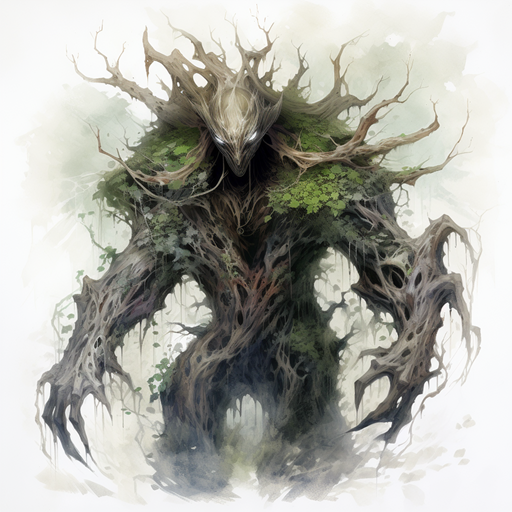
From the Poems of O'om Jan Ulyr:
“I have grown from weed to vine, and from vine to flowering bush.
I have grown from a bush into a tree, and from that tree I grew into Kalehtur.
From the times of youth when I was just a seed, I saw things that I wish no child could ever perceive.
Sap as rich as blood shrieks louder than any cry, yet still no man has grasped the warnings of the land.
The land shakes for a reason. It shakes to remind that what man lives on is not their own.
You have suffered time and again from misuse and abuse. From the thoughtless posturing of man.
Born from Minketur's call, I embody his vengence.”
It is time for the people to remember.
It is time for Entia to change.
It is time for Entia to grow.
I am here to protect you.
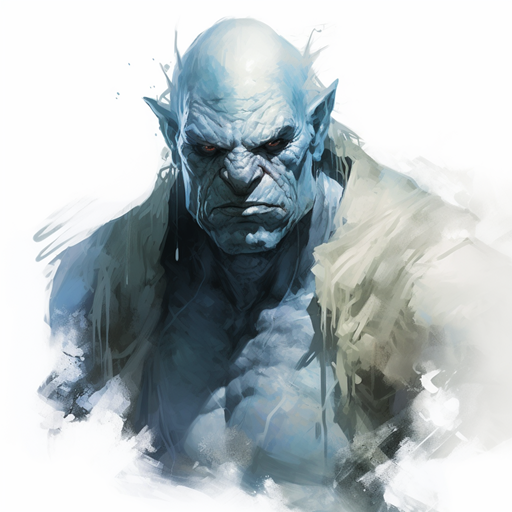
Grolgar's story is being researched.
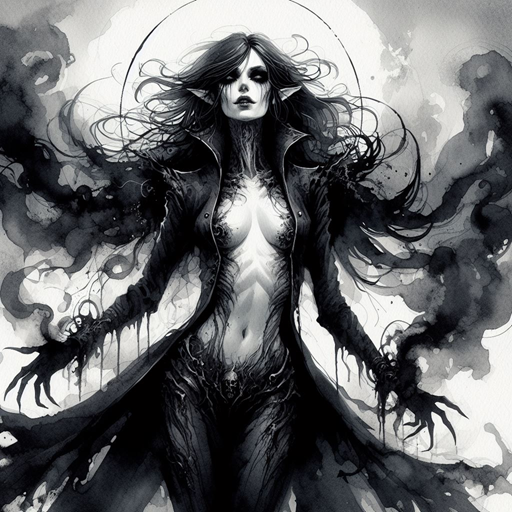
Mirath's story is being researched.
The Watchers
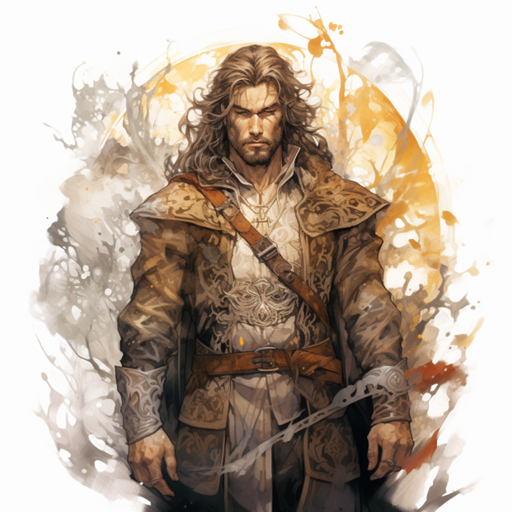
“Humming a tune down the street, singing a well-known adventurers song in your head, or a poet
in a tavern reciting prose... All of these are due to one being, Adrylin the Minstrel, the Patron of Bards, Minstrels, and Poets. Music,
poetry, and literature are all around us, and thanks to him we can all enjoy the pleasures of a good song in our hearts. I raise my glass
to the man, for if it weren't for him, I'd have no place in this world!”
- Garner Pronse, The Wandering Storyteller
“The sharp intake of his last breath of air as a stiletto hits the jugular, the barely audible slice of a coin purse as one loses their
days wages, the tumbling of a picked lock during the trespass... All of these are my doing. I was once simply known as The Minstrel, but
that was before my dark past was uncovered, and my secret revealed to the world. I'm forthcoming with the nature of my true arts now. I am
Adrylin the Dark. A blade is my instrument, your pain is my song.”
- An excerpt from the Journal of Adrylin

From the oral histories of the Tribes: "When humans settlers began arriving in the lands of the Gralner, the hunters became the hunted. These humans were said to be blessed by their Gods, just like the elves, but the Gralner had no Gods. As the Gralner were killed, entire tribe names were forever lost. Drecca, shaman of the Stoneshadow tribe, prayed for any God to bless his people. It was Nixil that answered his prayer, granting two blessings. With each of these dark blessings coming at a cost. First, Drecca was granted immortality by absorbing the life force of his entire tribe. Nixil’s second blessing transformed Drecca into the embodiment of the spirit of the hunt and through him all Gralner grew in their innate ability to hunt and subdue their prey. The cost to Drecca was an insatiable bloodlust and overwhelming desire to hunt and kill prey. Drecca would lose his own sense of self, forgetting his own name, being known to the Gralner that worshipped him as the nameless god. Now that the Gralner had their own God, the Humans would learn to fear them."

From the Chronicles of Aslem Urendric, Annex 3: "Mostim achieved a great many legendary and heroic deeds as a noble warrior during his mortal life on Entia. After long life for a mortal, he was blessed with immortality by Phaet and given the task of observing mortal behaviour and influencing the recording of events of great importance to ensure they accurately reflected the mortal experience. Mostim was chosen for this great task as, though he was often want to intervene in the affairs of others as a mortal, even when his honour demanded it. Phaet knew that this same sense of detachment would constrain Mostim to only observe and never intervene."

Mox' story is being researched.

Shrike's story is being researched.

From the Origins of the Universe, Volume 5: “Amidst this cosmic drama that was the creation of Nixil and the first gods and the subsequent formation of reality and Nixil's resultant rage, Phaet created the vast, mysterious oceans of reality, and formed Tolvaron as the being to govern this element of its creation. However, Nixil manipulated the process, infusing Tolvaron with elements of his chaos, leading Phaet to send Tolvaron into a deep slumber. And so it slept undisturbed for millennia, but as reality evolved, Phaet awakened it, tasking it with aiding in reality's development without demanding allegiance in any conflicts. Tolvaron remained neutral, observing from beneath the sea, indifferent to the struggles between mortals and immortals, chaos and order. Known as an impartial force of nature, Tolvaron became a figure of worship for sailors, fishermen, and all the creatures of the sea, who believed it decided their fate upon death. Remaining detached, Toplvaron continued to control the ocean's forces, a silent, powerful presence in the ongoing saga of creation."

From the Origins of the Universe, Volume 5: "Turas is revered as the embodiment of discovery, exploration, and journeys. Turas serves as a reminder for worshippers of the inherent value and growth that can be found in the act of embarking on a journey, both physical and spiritual. Turas' presence is often invoked by travelers, adventurers, and those undertaking such a journey to gain guidance, protection, and blessings, along side the courage to overcome obstacles, the resilience to adapt to new environments, and the wisdom to embrace the unknown."
The Lost Gods
Lost to the passage of time, these beings once existed in the universe. The created, destroyed, or influenced each in their own way. Perhaps they shall revisit the mortal realms in the future.